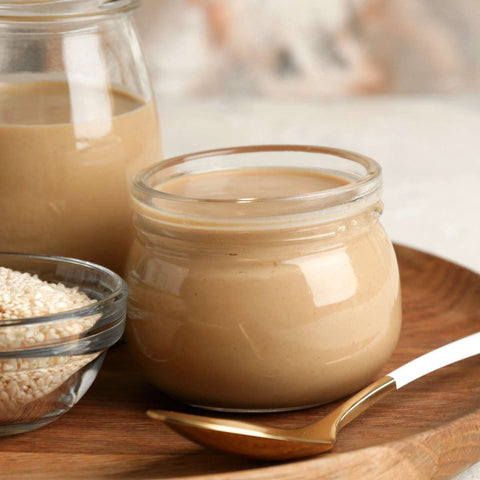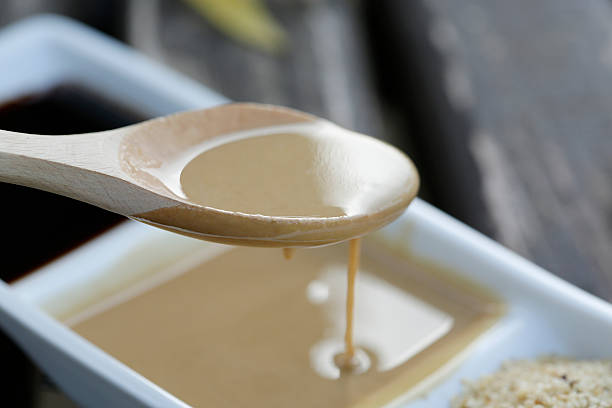Tahini, a rich and creamy dip made from ground sesame seeds, has long been a staple in Middle Eastern cuisine and is gaining popularity worldwide. As with many foods, questions about its health implications have arisen, with some wondering whether tahini is inflammatory. In this article, we will explore the nutritional profile of tahini spread and examine whether it can be considered inflammatory.
In the realm of nutritious foods, tahini emerges as a noteworthy contender, boasting not only its creamy and versatile nature but also a wealth of health-promoting properties. Among the impressive nutritional profile of tahini blend , it stands out as a rich source of selenium, a mineral celebrated for its potent antioxidant capabilities that play a pivotal role in alleviating inflammation within the body. Delving deeper into the molecular composition of sesame seeds and sesame oil, we uncover sesamol, a natural compound that not only shares in the antioxidant prowess but also offers anti-inflammatory and anti-aging benefits. As we navigate the scientific landscape, intriguing studies have even hinted at sesamol's potential as a powerful agent in combating cancer. Let's explore the remarkable attributes that position tahini dip as more than just a culinary delight – a nourishing addition with promising health implications.

Understanding Inflammation:
Inflammation is a natural response by the body to injury or infection, but chronic inflammation can contribute to various health issues, including heart disease, diabetes, and autoimmune disorders. Certain foods are believed to either promote or reduce inflammation, leading to questions about the impact of tahini on the inflammatory response.
Nutritional Composition of Tahini:
Tahini, a Vegan Dip or a Plant-based dip is a nutrient-dense food with a range of health benefits. It is a good source of healthy fats, including monounsaturated and polyunsaturated fats. These fats have been linked to anti-inflammatory effects and may help reduce the risk of chronic diseases.
Also, this Plant base spread contains essential minerals such as magnesium, phosphorus, and iron, which play crucial roles in maintaining overall health. Additionally, this Creamy tahini provides plant-based protein and is rich in vitamins, particularly vitamin E, an antioxidant known for its potential anti-inflammatory properties.
Omega-3 and Omega-6 Fatty Acids:
The balance between omega-3 and omega-6 fatty acids is a critical factor in determining the inflammatory potential of a food. While omega-3 fatty acids are generally considered anti-inflammatory, excessive intake of omega-6 fatty acids, often found in processed foods, can contribute to inflammation.
Tahini is relatively high in omega-6 fatty acids but also contains omega-3 fatty acids. The key lies in maintaining a balanced diet to ensure that the omega-3 to omega-6 ratio is favorable for mitigating inflammation.
Phytosterols and Antioxidants:
Tahini contains phytosterols, plant compounds known for their potential cholesterol-lowering effects. Moreover, the paste is rich in antioxidants, which help combat oxidative stress and inflammation in the body.
Contrary to concerns, tahini can be a part of a balanced and anti-inflammatory diet. Its nutrient composition, including healthy fats, vitamins, and minerals, suggests potential benefits for overall health. As with any food, moderation is key, and individual responses to certain foods may vary.
If you have specific health concerns or conditions, it's advisable to consult with a healthcare professional or a registered dietitian who can provide personalized advice based on your unique needs and circumstances. Embracing a varied and well-rounded diet, complemented by a healthy lifestyle, remains essential for managing inflammation and promoting overall well-being.

